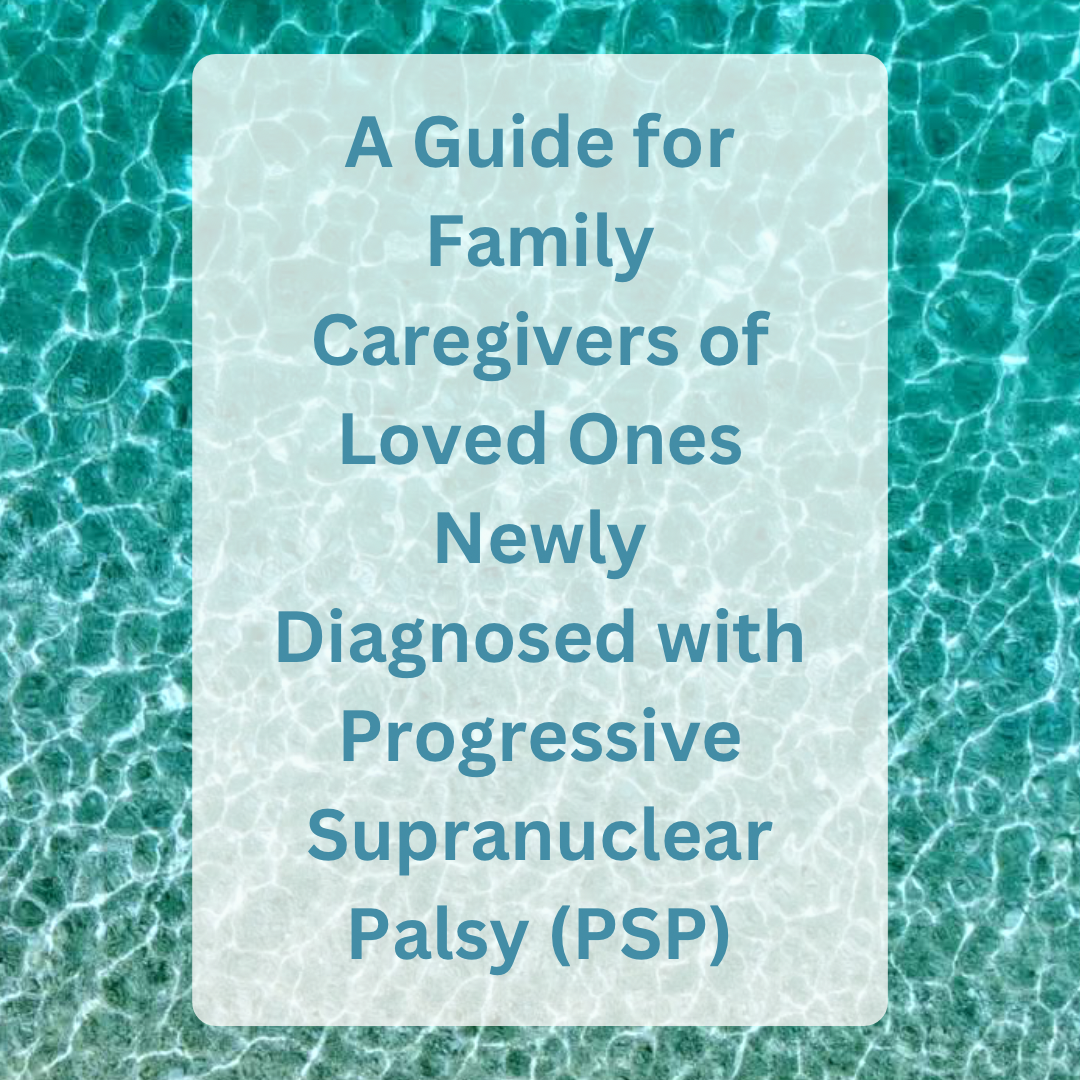
A Guide for Family Caregivers of Loved Ones Newly Diagnosed with Progressive Supranuclear Palsy (PSP)
Understanding PSP: PSP affects a person's movement, balance, speech, swallowing, vision, mood, and behavior. The progression of the disease varies but typically the person experiences difficulty with balance, blurred vision, and cognitive issues. Educate yourself about PSP, its symptoms, and its progression so you can better support your loved one.
Medical Team Coordination: Work with a healthcare team that has experience with PSP or similar neurological disorders. This team might include a neurologist, physical therapist, occupational therapist, speech therapist, and nutritionist. Regular appointments and communication with this team will be key to managing your loved one's symptoms and comfort level.
Home Safety: To prevent falls, remove hazards in the home like loose rugs and clutter. Install safety bars in the bathroom, use non-slip mats, and consider using a shower chair. As the disease progresses, you might need to consider a wheelchair or other mobility aids.
Communication: PSP can cause slurred speech and difficulty swallowing. Working with a speech-language pathologist can help manage these symptoms. They can suggest communication devices or strategies, as well as techniques and diets to minimize choking while eating and drinking.
Nutrition: Difficulty swallowing can lead to weight loss and malnutrition. Working with a dietitian can help create a meal plan that is nutritious, easy to eat, and enjoyable for your loved one.
Mental Health: PSP can cause mood changes, depression, and apathy. Emotional support is crucial, and so is professional help. Psychiatrists, psychologists, or therapists who are knowledgeable about PSP can provide valuable help.
Self-care: Caregiving can be stressful, and it's important for caregivers to take care of their own physical and mental health too. Make sure you're eating right, getting exercise, and taking time for yourself. Support groups, either online or in-person, can provide comfort, reduce feelings of isolation, and provide practical advice.
Planning for the Future: PSP is a progressive disease, and planning for the future is crucial. This might include discussing legal, financial, and end-of-life issues. Consult with a social worker or legal advisor to discuss these matters.
Remember, every person with PSP has a unique journey. It's a challenging condition, but many resources are available to help. Ask for support when you need it, and take things one day at a time.

 Donate
Donate




3 comments
Caregiver for husband recently diagnosed with PSP. He has all of the symptoms and it appears he may be in Stage 3. He is 85 and requires constant supervision. He has mobility issues/falling, incontinence with a catheter requiring care, type two diabetes requiring special soft food diabetic diet and cognitive/speech issues. 24/7 care needed. We have some help. Family is in close touch but no one lives close by. We are blessed to have a caring community.
MY MOM HAS PSP AND PARKINSONS. IT HAS BEEN A VERY HARD, BUT I HAVE LEARNED TO COPE, AND WORK WITH HER THE BEST WAY. SHE HAS NO MORE MOBILTY AND I HAVE TO DO EVERYTHING FOR HER, KEEPING A ROUTINE IS VERY IMPORTANT. COMFORTING HER WHEN NEEDED. SHE IS FRAGIL AS A BABY NOW. BUT IT IS VERY IMPORTANT TO HAVE PATIENCE . I HAVE NO SUPPORT FROM FAMILY, BUT MENTALLY IT CAN BE ALOT. BUT I HAVE LEARNED TO BUILD THE STRENGHT TO BE BY HER SIDE DAY BY DAY.
Caregiver for husband who has been diagnosed with PSP…need info on study being treated with stem cells in Connecticut .